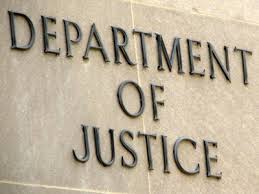Voluntary Disclosure: The Continuing Debate
 For years (okay 3 years), I have written about the need for DOJ to address its policies surrounding voluntary disclosure. DOJ and the SEC regularly urge companies and FCPA practitioners to disclose FCPA violations to DOJ in order to earn a possible declination, deferred prosecution agreement, or a reduced penalty.
For years (okay 3 years), I have written about the need for DOJ to address its policies surrounding voluntary disclosure. DOJ and the SEC regularly urge companies and FCPA practitioners to disclose FCPA violations to DOJ in order to earn a possible declination, deferred prosecution agreement, or a reduced penalty.
DOJ has been criticized for failing to define exactly how it assesses cooperation and how much of a discount companies earn by cooperating. In response, DOJ has tried to be more transparent. The FCPA Guidance sets out factors DOJ takes into consideration; DOJ officials have given speeches and Congressional testimony to shine some light on the process.
In its settlement papers, DOJ sets out the factors usually relied on for awarding cooperation discounts. In general, companies can earn around a 25 percent discount from the bottom of a sentencing range in determining a fine. This is not a hard and fast rule and many other factors can influence this calculation. Marubeni, a two-time FCPA violator, was required to plead to eight counts of criminal violations and agreed to a fine in the middle of the applicable sentencing fine range despite its making no effort to cooperate with the government.
The issue of a cooperation discount is not a trivial matter. Our criminal justice system depends on consistent application of advance rules to provide transparency and some measure of certainty. Of course, a trial judge can upset delicate negotiations between the parties (unless it is a plea contingent on judicial approval under the rules).
 When a company learns about potential FCPA violations, the board and senior managers have to decide whether to disclose the conduct to the government, or to identify the problem, remediate the problem with enhanced compliance measures and decline to report the issue to the government. An important part of that calculation is the risk that a whistleblower, terminated employee or other individual may report the conduct to the government.
When a company learns about potential FCPA violations, the board and senior managers have to decide whether to disclose the conduct to the government, or to identify the problem, remediate the problem with enhanced compliance measures and decline to report the issue to the government. An important part of that calculation is the risk that a whistleblower, terminated employee or other individual may report the conduct to the government.
In the absence of a defined benefit that a company can earn from voluntary disclosure, companies and FCPA practitioners are left to guess or estimate the exact benefit or range of outcomes that could result.
Prosecutors regularly define the benefit to a defendant from entering a guilty plea. For example, many US Attorneys’ Offices adopt policies that provide a reduction from the base offense level that varies depending on the nature and extent of the defendant’s cooperation. A defendant who cooperates in a charged case may get a 4-point reduction, and if the defendant cooperates against other defendants “outside” the case, the defendant may receive an 8-point reduction in the base offense level. Prosecutors typically reserve an even greater reduction for defendants who provide “extraordinary” cooperation.
In the FCPA world, DOJ has tried to adhere to a 25 percent reduction from the lower end of the guideline range for companies that cooperate. That figure is subject to a fair amount of variation depending on the nature of the violation itself, the extent of cooperation, and the remediation efforts made by the company.
Some have dusted off an old proposal to address this issue – adoption of a corporate leniency program similar to that used by the Antitrust Division. The proposal has no merit.
The Antitrust Division’s leniency program is designed to uncover cartels among multiple companies to reduce competition and raise prices. To provide an incentive for a company to report other companies, the Antitrust Division promises the first to report an illegal cartel with immunity – no fine and no punishment of officers and employees covered by the immunity agreement. The leniency program creates strong incentives for a company to identify other members of a cartel.
 Advocates for this proposal in the FCPA context ignore a significant distinction – a single company and its actors typically carry out illegal bribery schemes. Cartel incentives are far different than a single company carrying out a bribery scheme. There is no reason to award a company with immunity to encourage disclosure of a bribery scheme, some of which could be massive in scope and ongoing for years.
Advocates for this proposal in the FCPA context ignore a significant distinction – a single company and its actors typically carry out illegal bribery schemes. Cartel incentives are far different than a single company carrying out a bribery scheme. There is no reason to award a company with immunity to encourage disclosure of a bribery scheme, some of which could be massive in scope and ongoing for years.
DOJ can address this issue without any statutory changes to the FCPA. It can announce a new policy and announce how it will apply to cases going forward. More definition is needed to guide the voluntary disclosure process. DOJ knows it has a problem and DOJ should take the time to address it.














